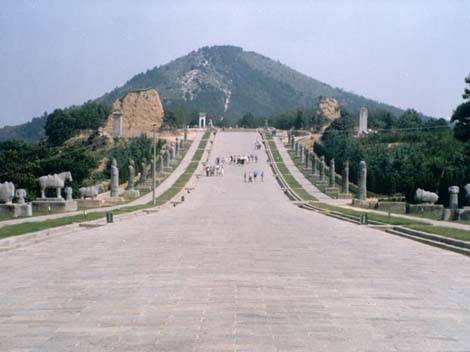| Home > China Feature |
Hunan to lease out more scenic spots
BEIJING, Dec. 19 -- A scheme that allows scenic spots such as mountains and lakes in Hunan province to be managed by private operators will be expanded from March, the provincial tourism bureau said on Tuesday.
Under the new regulation, "mountains, lakes and all tourism resources will be put on the market so they can be allocated more efficiently", Ouyang Bin, director of the bureau's policy and regulation division, told China Daily.
The move is in line with Hunan authorities' commitment to build "a strong tourism industry", he said.
Since 2002, Hunan's annual tourism revenue has been growing by an average of 20 percent a year, Governor Zhou Qiang said in April.
Last year it reached 73.27 billion yuan ($10.6 billion) and accounted for 8 percent of the provincial GDP, he said.
Based on national guidelines, tourism revenue in provinces like Hunan should account for at least 10 percent of GDP, Zhou said.
The leasing agreements, which encompass operational, maintenance and infrastructure costs, will vary for each scenic spot, Ouyang said.
Zou Guoheng, secretary-general of the Hunan tourism association, said the provincial government began leasing out scenic spots to private operators in 2001.
In one deal, Fenghuang Ancient City Co paid 936 million yuan in 2001 for the management rights to eight sites in Fenghuang county, for a term of 50 years.
The county is famous for its natural beauty, including the Tuojiang river, and rich ethnic culture.
As of 2006, Fenghuang Ancient City had paid 127 million yuan in taxes and administrative fees to local authorities, and generated 206 million yuan in revenue, according to the firm's own figures.
According to a report in the Hunan Daily in September, Fenghuang county generated 1.7 billion yuan in tourism revenue last year - 66 times the figure for 2001 - and created more than 10,000 jobs.
"The cooperation seen in the Fenghuang deal was not laid out in detail under the law, but the outcome has been good," Ouyang said.
Shang Bin, director of the tourism bureau's financial and planning department, said the new regulation "explores ways to make good use of private funds to develop Hunan's rich tourism resources".
"Following the announcement of the regulation, a number of private firms have made inquiries about renting the management rights to local scenic attractions," he said, without elaborating.
Zou said: "Fenghuang is a good example for other places that have great scenery but lack the necessary financial support for development."
But not all of the deals have been as successful as Fenghuang's.
Xiao Yimin, head of the economic research center of the Hunan Academy of Social Science, said the management rights for Yanzidong, an area of natural beauty in the city of Huaihua, were leased to private operators a few years ago, but it was still underdeveloped.
"I have been there. Its scenery is as good as the mountains and lakes in Guilin, but it has not been developed properly, and that could be down to the rashness of the authorities to lease it," he said.
Others have expressed concern that the new regulation will lead to ownership disputes over forestry and land resources.
Ouyang Runping, a professor at Hunan University, said "the landscape, ancient relics and lakes belong to the nation" and protecting them after they are handed over to the private sector to run and profit from raises "a serious question".
However, the new regulation does not violate existing ones that protect land resources, forests and cultural relics, Ouyang Bin said.
"Our purpose is only to make good use of market forces to develop our rich tourism resources," he said.
Art
 more
moreSculpture in Qianling Mausoleum
The sculpture of Qianling Mausoleum is the main relic of the ground ...

A Sweet Art:Sugar Painting
In and around China’s southwestern Sichuan Province, it is usual to ...

Chinese Treasure Displayed at Sha...
There are four treasures of the Chu Minority Culture displayed at th...

Custom
 more
more




 print
print  email
email  Favorite
Favorite  Transtlate
Transtlate 







